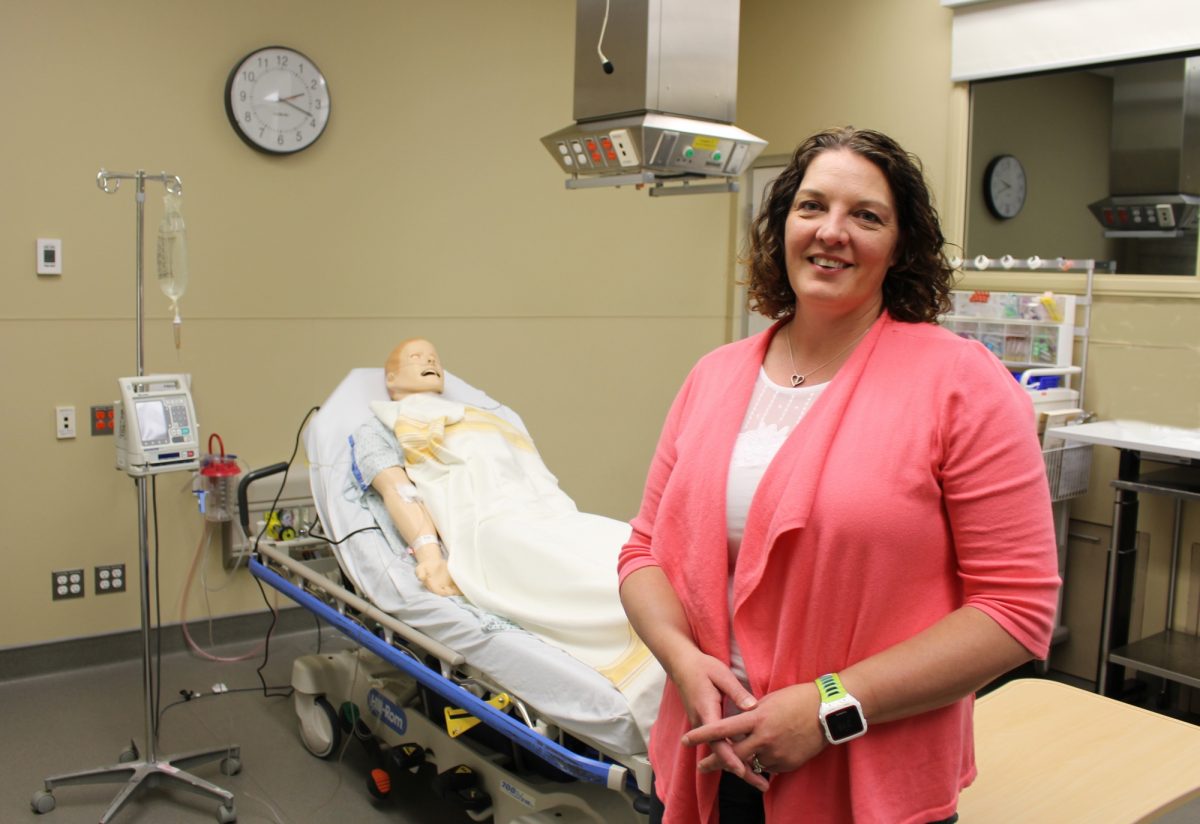
Dr. Nicole Harder was recently appointed Mindermar Professor in Human Simulation in the Rady Faulty of Health Sciences.
Mindermar professor sees growth in simulation learning
Dr. Nicole Harder, assistant professor in the College of Nursing who was appointed Mindermar Professor in Human Simulation in January, has seen a lot of growth in simulation learning as a health education tool over the last 19 years, from the quality of the manikins to the realism of simulated hospital environments.
Harder, who has been with the U of M since 2000, has been a specialist in human simulation learning for several years and was involved in developing the human simulation learning environments at the Helen Glass Centre for Nursing and the Clinical Learning and Simulation Facility (CLSF) at the Bannatyne campus.
The simulation program at the Rady Faculty of Health Sciences uses task trainers, standardized patients and scenarios with life-like manikins in a simulated hospital setting to recreate clinical situations.
“When we initially started at the Fort Garry campus, it was pretty small scale – we just had one room, one manikin and we were just trying to get our feet under us, and now it’s very state-of-the-art,” Harder said.
Currently the Fort Garry facility houses five high-fidelity simulation suites with simulators for adults, pediatrics, labour and delivery, and a babies, plus two additional “wards” that include 20 beds, and 20 examination pods. The CLSF, which opened in 2008, includes 14 rooms than range from clinic rooms to operating theaters.
Harder is the first College of Nursing faculty member to hold the Mindermar professor position since it was established in 2009. She received her bachelor of nursing degree from the U of M in 1996, a master’s of public administration from the U of M and University of Winnipeg, and a PhD in nursing from the University of Alberta, for which she focused on learning through simulation.
“When I was working on my PhD, there were not a lot of people involved in simulation at the time, so I started working with people from education psychology and the military, who had worked in those environments as well, and we looked at how people learn in these kinds of environments,” she said.
The Mindermar professor role is a five-year term open to faculty from all colleges in the health sciences faculty.
“I really have to applaud the administration for making this an inter-professional role,” she said. “They really want to start bringing together all disciplines.”
She said a key to doing this will be the establishment of working “clusters” that will focus on a variety of areas identified by a cross-section of faculty members from each college.
“We have a survey out right now on simulation needs and experiences among all faculty members,” she said. “That’s how we’re going to start – find out who has an interest, what that interest is, and then create these smaller groups. From there we can start to move many separate projects forward.”






